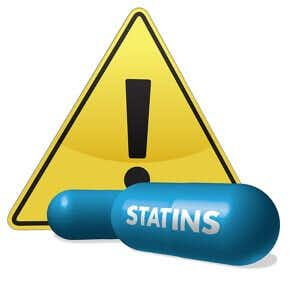
A new study from Germany reports that there is a connection between low total cholesterol and low LDL cholesterol and nerve damage in patients with type 2 diabetes (JAMA Network Open, May 31, 2019). This will come as a great shock to many cardiologists who believe that there is no such thing as too low a cholesterol level. The researchers from Heidelberg University Hospital recruited 100 patients with type 2 diabetes. They underwent magnetic resonance neurography (MRN). The radiologists who reviewed the scans were “blinded to all patient data.” They found a statistically significant relationship between low LDL cholesterol and nerve damage.
Why Would Cholesterol Impact Nerve Function?
The authors of this study point out that:
“…low serum cholesterol levels are associated with neuropathic symptoms [nerve pain] and impair nerve regeneration after axonal damage in neurons of the central and peripheral nervous systems. This association was mainly attributed to an insufficient supply of cholesterol to neurite tips and adjacent Schwann cells of regenerating axons as a consequence of a decrease in lipoproteins.”
That’s pretty deep into the weeds. In essence these physicians are suggesting that cholesterol is essential for nerve cells. When total cholesterol and LDL cholesterol go too low, there can be damage to axons and people can experience symptoms of peripheral neuropathy.
The investigators go on to say:
“To our knowledge, this study was the first to visualize in vivo [in the body] that low levels of serum cholesterol, specifically LDL-C, were accompanied by peripheral nerve damage in T2D DPN [type 2 diabetes diabetic polyneuropathy]…our findings are in line with results of previous studies that found that the intake of statins and a decrease of serum cholesterol level are associated with neuropathic symptoms, microvascular damage, and an accelerated deterioration of peripheral nerve fibers. A potential explanation of the associations found in our cohort might be that lowering serum cholesterol levels impairs peripheral nerve regeneration because cholesterol cannot be produced in axons…”
People with Diabetes Are Like Canaries in Coal Mines:
You no doubt know that that diabetes predisposes patients to a range of cardiovascular complications including heart attacks and strokes. Type 2 diabetes also increases the risk for nerve damage. That is why patients are encouraged to manage their blood sugar levels carefully and take statin-type drugs to reduce the risk of vascular damage.
If people with diabetes are more susceptible to nerve damage after aggressive cholesterol-lowering therapies, what is happening to the rest of us? The statin clinical trials did not detect peripheral neuropathy.
Most clinicians would be astonished to learn that there might be a connection between statin-induced low LDL cholesterol and nerve damage. If one searches the official prescribing information, though, you can find reference to peripheral neuropathy with some statins.
You can read more at this link:
Do Statins Cause Nerve Pain (Neuropathy)?
Reports from Readers about low LDL cholesterol and nerve damage:
C.B. Bell offered this thoughtful comment:
“I have read in numerous articles that statins weaken the myelin sheath (which is at least partially made up of cholesterol) and/or strip nerves/axonal neurons of it. If that is true, then statins most definitely could cause peripheral neuropathy.
“Complaining to providers of any such symptoms is typically met with the line ‘statins don’t do that.’ It’s no secret that lots of money is made from prescribing statins, both by physicians and drug companies. Until patients are actually treated with respect and listened to, statin side effects will be continued to be called ‘rare.’ Those of us damaged by them (especially when prescribed the 80mg megadoses of atorvastatin) know better.”
Joe shared this experience:
“I took statins for around 14 years. Over that time I developed leg muscle problems and neuropathy in the bottom of my feet. I stopped taking my statin due to leg muscle problems against the advice of my doctors.
“Muscle problems have improved and so has the neuropathy, a result not anticipated. About two months after stopping statins I occasionally felt like I was walking on a spongy rubber pad when I was walking on concrete. Some feeling was coming back in the bottoms of my feet. The spongy feeling began to occur more frequently, presumably from feeling feet tissue compress as I walked.
“I am less aware of that sensation now (1.5 years later) as I continue to improve. My balance has improved too since I have another sensor (my feet) providing input.”
Now that the German researchers have confirmed that there is a linkage between low total cholesterol and low LDL cholesterol and nerve damage, perhaps some health professionals will pay attention.


